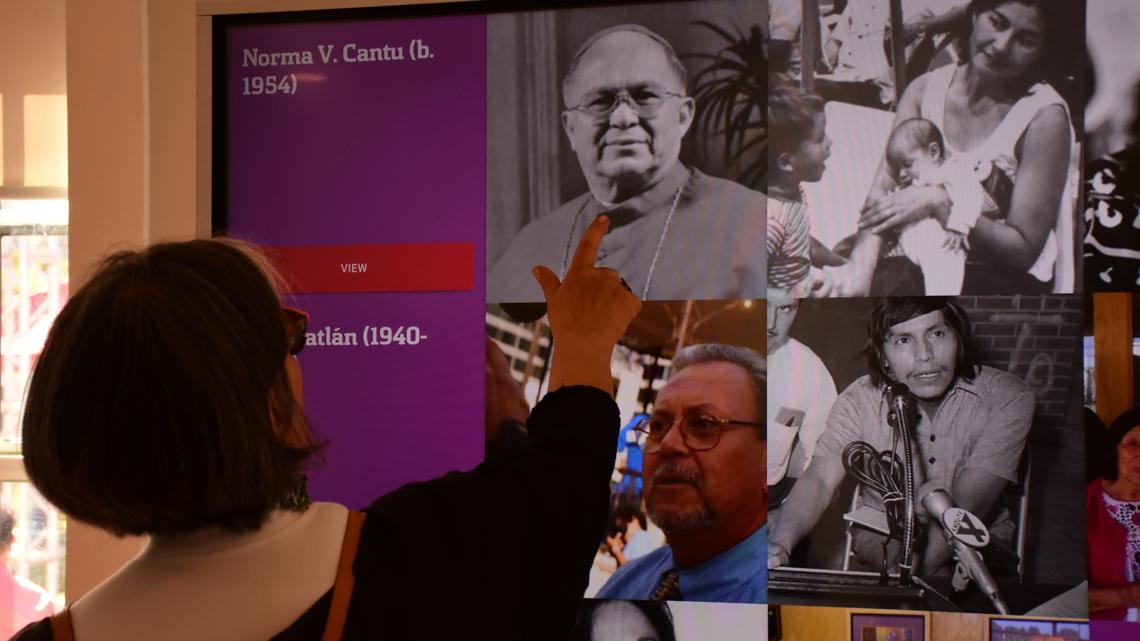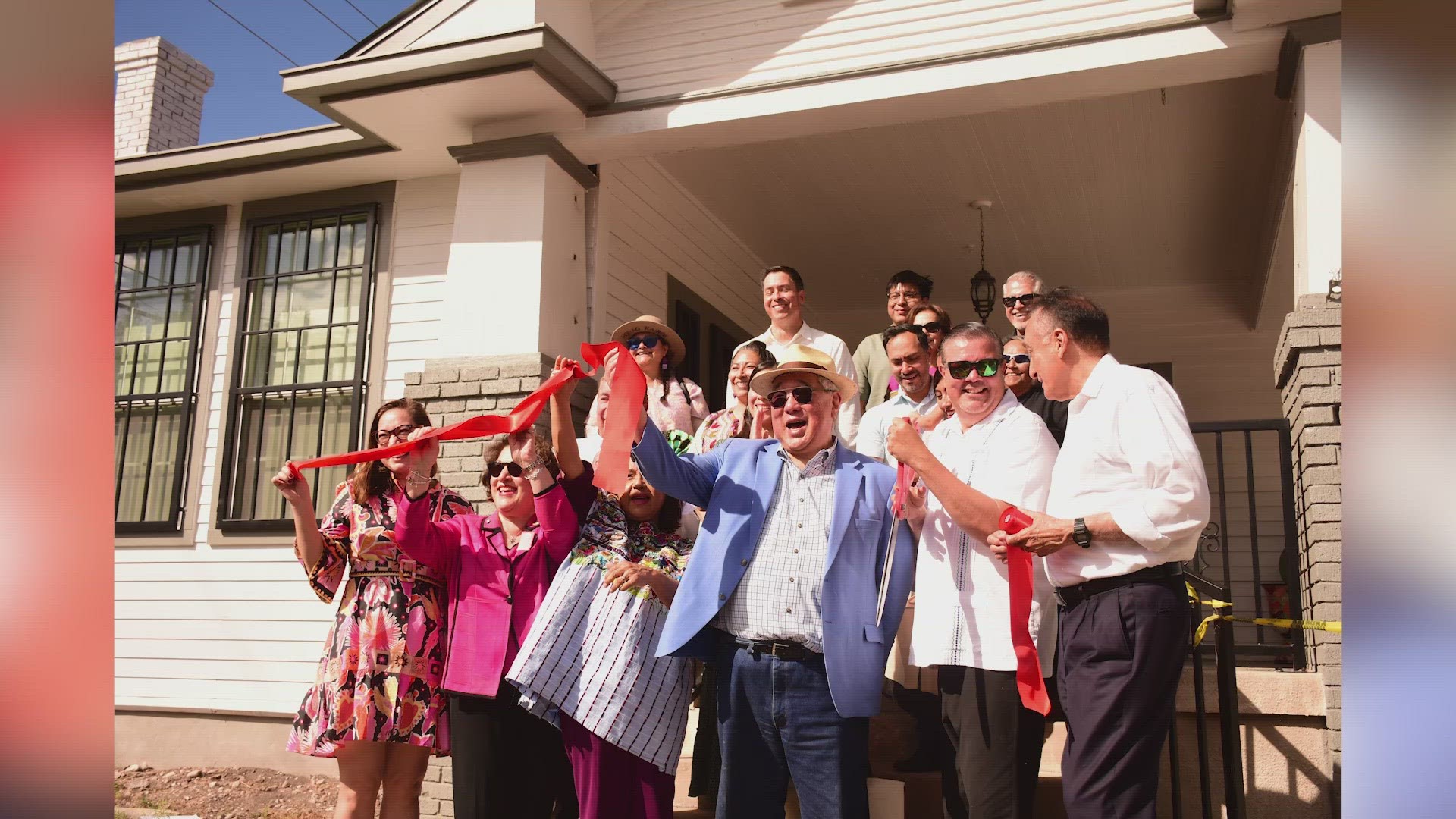SAN ANTONIO — On a warm fall afternoon in west San Antonio, a moment of celebration filled with musical interludes and pride for the civil rights advancements of Mexican Americans also yielded a message of urgency from local dignitaries past and present.
“It’s important for us to recognize not only San Antonio history, but our future," Mayor Ron Nirenberg said at the event. "We live in a time where regressive politics are back in force, not only in our state but across the country."
At the corner of Buena Vista and Navidad streets Saturday afternoon, the Mexican American Civil Rights Institute – a relatively new organization dedicated to sharing San Antonio's historical role in struggles for equality – officially welcomed community members to its new visitor center at a ribbon-cutting ceremony. MACRI officials have worked out of spare office space on Our Lady of the Lake University campus since 2019, but former Mayor Henry Cisneros said the visitor center's debut was "making right some wrongs of the past in terms of overlooking people who have shaped not just our neighborhood, not just our city, but indeed the Latino presence in the United States."
Mariachi musicians and performers with the Guadalupe Dance Academy helped mark the occasion before the ribbon was cut just a few yards away.


Inside the visitor center, a humble building that once housed the owners of a printing press just across the street – the Munguía family – are artifacts spotlighting the role San Antonio Mexican Americans played in advancing their community's civil rights. The central feature: an interactive display that allows guests to select one of those activists – Bill Gonzaba, Gloria Rodriguez and Emma Tenayuca among them – and learn more about their place in history.
Much of that history, MACRI officials say, isn't being told in public schools.
“We’re very aware that students don’t get that information until maybe they go to college and take a Mexican Studies class," said MACRI Executive Director Sarah Gould.
To help fill in those gaps, Gould says they plan to organize traveling exhibits and visit local districts to help San Antonians connect the dots with the history of what transpired on their streets.
That's an extension of the programming MACRI offered during the pandemic—mere months after City Council approved two years of seed funding for the institute in September 2019, they had to pivot to virtual programming to raise awareness and money.
"We wanted to raise money," Gould said, "but how do you raise money when you don’t have anything to show?”


MACRI compensated by livestreaming conversations about Mexican American civil rights milestones that drew in a national audience by the thousands.
“We were able to build a national audience under those not-ideal circumstances. But it kind of worked in our favor.”
Fast-forward a few years, and MACRI now has a space to engage with local community members more directly while planning for what’s next.
Working towards a bigger goal
The celebratory speeches and introductions were made from under an eye-popping, multicolored awning, but the green traffic light from behind the stage marked a symbolic moment when Gould announced what's next for the organization: A site feasibility study to determine a San Antonio location for a larger national museum dedicated to the history of Mexican American civil rights figures and milestones.
The study is expected to be conducted in early 2024, according to Gould, herself a historian who previously worked at museums and cultural institutions before coming onboard with MACRI.
“You have to consider a lot of factors: accessibility, infrastructure, will it allow for growth over time, will it allow for adequate parking?”
Eventually, Gould says, a recommendation will be made and “some serious fundraising will happen.”
For now, city leaders who attended Saturday's unveiling are hopeful the MACRI Visitor Center will make it easier for the community's present to better appreciate its past—a past many of them said they have a personal connection to.
"This is an occasion not just for the citizens of San Antonio... but for the citizens who have to struggle, who have been told they are second-class," said City Councilmember Phyllis Viagran. "This is the story we tell, about how we move forward."
>MORE LOCAL NEWS:
>TRENDING ON KENS 5 YOUTUBE:

